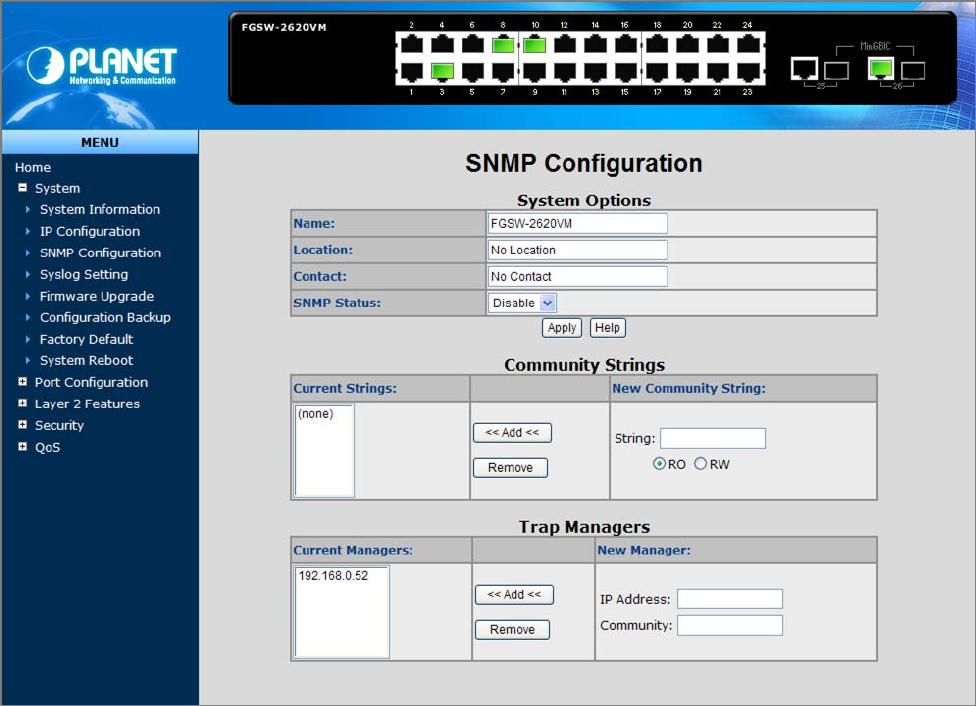
User’s Manual of FGSW-2620VM / FGSW-2620PVM
43
4.2.3 SNMP Configuration
4.2.3.1 SNMP Overview
The Simple Network Management Protocol (SNMP) is an application layer protocol that facilitates the exchange of
management information between network devices. It is part of the Transmission Control Protocol/Internet Protocol (TCP/IP)
protocol suite. SNMP enables network administrators to manage network performance, find and solve network problems,
and plan for network growth.
Figure 4-2-4: SNMP configuration interface
An SNMP-managed network consists of three key components: Network management stations (NMSs), SNMP agents,
Management information base (MIB) and network-management protocol:
。 Network management stations (NMSs):Sometimes called consoles, these devices execute management
applications that monitor and control network elements. Physically, NMSs are usually engineering workstation-caliber
computers with fast CPUs, megapixel color displays, substantial memory, and abundant disk space. At least one
NMS must be present in each managed environment.
。 Agents:Agents are software modules that reside in network elements. They collect and store management
information such as the number of error packets received by a network element.
。 Management information base (MIB):A MIB is a collection of managed objects residing in a virtual information
store. Collections of related managed objects are defined in specific MIB modules.
。 network-management protocol:A management protocol is used to convey management information between


















